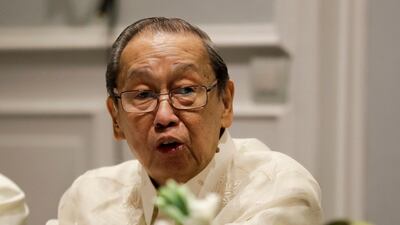Communist guerrillas in the Philippines on Wednesday said they would observe a ceasefire after the UN called for a global halt of armed clashes during the coronavirus pandemic.
New People’s Army militants have been ordered to stop assaults and shift to a defensive position from Thursday to April 15, the Communist Party of the Philippines said in a statement.
The rebels said the ceasefire was a “direct response to the call of UN Secretary General Antonio Guterres for a global ceasefire between warring parties for the common purpose of fighting the Covid-19 pandemic.”
Mr Guterres issued the call on Monday, saying: “It is time to put armed conflict on lockdown and focus together on the true fight of our lives.”
The insurgency, one of Asia’s longest-running rebellions, has raged for more than half a century. The military estimates about 3,500 armed guerrillas remain after battle setbacks, infighting and surrenders reduced their forces, although the rebels claim they have more.
New People’s Army said its ceasefire was unrelated to a similar move by the military and police but could foster preliminary talks to resume long-stalled negotiations.
President Rodrigo Duterte declared a unilateral ceasefire with communist guerrillas last week to focus on fighting the coronavirus outbreak that prompted him to place the northern third of the country under a strict quarantine. The rebels are active in the northern region, home to more than 50 million people.
Sidney Jones, a Jakarta-based analyst with the Institute for Policy Analysis of Conflict, said the fight against the global pandemic offers a rare common cause for governments and insurgents.
Ms Jones cited how the 2004 Indian Ocean tsunami helped bring about a 2005 peace deal between rebels and the government in Indonesia’s Aceh province “when both sides realised it was more important to rebuild than to keep fighting”.
If governments and insurgents heed the UN chief’s call, that would bring “some relief to vulnerable communities and maybe a brief moment, even in the midst of a pandemic, to consider what life without violence would be like,” she told The Associated Press.
Mr Duterte launched peace talks with the rebels when he took office in mid-2016. But the negotiations, brokered by the Netherlands, eventually broke down, with each side accusing the other of continuing to carry out attacks.
Although he has often lashed out at the rebels, Mr Duterte has repeatedly signalled he is open to resuming negotiations with them. In December, he sent an envoy to meet self-exiled communist rebel leaders in Europe to discuss the prospect of resuming talks.

